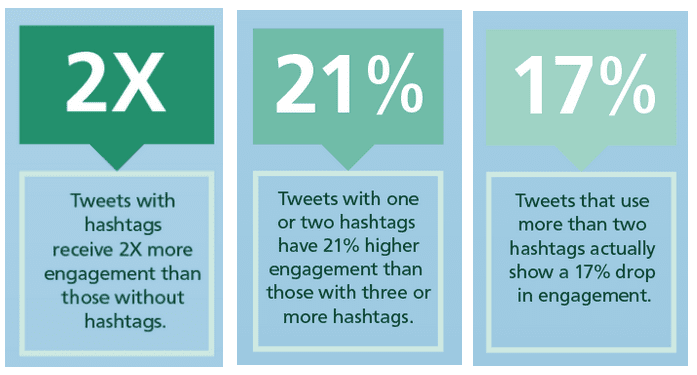Columbia Research Illuminates Unconscious Cause of Fake News

Fake news, the most oft-repeated phrase of 2017, doesn’t just rise out of some malevolent direction. According to Columbia Business School, there are many social factors hidden in the process.
Fake news has become an epidemic of sorts, as the recent investigation into how Russia used divisive Facebook posts to possibly influence the presidential election demonstrates, planted stories can have a “powerful and multiplying effect” due to their circulation on social media. Reportedly, fake news possibly impacted elections France and Kenya, as well.
Gita Johar, the Meyer Feldberg Professor of Business at Columbia Business School, along with doctoral students Youjung Jun and Rachel Meng, published research entitled Perceived Social Presence Reduces Fact-Checking in which they discovered that people are less likely to investigate the veracity of ambiguous claims when they are “consumed in a group setting” and when that information “aligns with their own party affiliation.”
According to the article, Johar, Jun, and Meng “conducted eight experiments to evaluate how the presence of others affects the way that people evaluate information and the extent to which people verify ambiguous claims.” The study found that “perceiving the company of others seemed to influence people’s willingness to verify information, not how much they believed it.” Their research posited three potential reasons why “collective settings may suppress fact checking.”
- Individuals may exert less effort (and hence be less likely to fact-check claims) because they expect to ‘free ride’ on others.
- People may abide by social norms that lead them to take the words of others at face value.
- Crowds may inherently cause people to feel ‘safety in numbers,’ which decreases vigilance in general.
Johar concludes, “Animals in the wild hide out and feel safer in herds and, similarly, we feel safer in a crowd. When applied to information consumed on social media, this same instinct results in lower fact-checking.”
You can read more about the trio’s research on fake news stories on the official Columbia Business School website.
D’Amore-McKim Marketing Study Says Let Customers Do The Talking on Social Media

According to Northeastern professor Koen Pauwels’ recent Journal of Marketing paper, there are “three consumer mindset metrics” within social media that affect stock performance and shareholder value. D’Amore-McKim recently explored his research.
Social Media Do’s and Don’ts MBAs Need To Know

Social media can be an impossibly powerful tool. It is the president’s favorite method of communication, after all. Social media can also determine the future for MBA applicants and candidates.
For better or for worse.
U.S. News & World Report found that 35 percent officers interviewed do check out applicants’ social media accounts. What they find might increase a person’s chance of getting in—or could diminish it. Social media could say a lot about a person that may not be clear in an essay or recommendation letter. So why would school’s not at least be safe and check it out?
“To be clear, the large majority of admissions officers do not visit applicants’ social media sites,” Yariv Alpher, Executive Director of Research at Kaplan Test Prep, said. “However, a meaningful number do, as many note that social media can provide a more authentic and holistic view of applicants beyond the polished applications. And in fact, past Kaplan surveys have shown that a majority of students themselves consider their social networking sites to be ‘fair game’ for admissions officers.”
Well, that means applicants and even students must be really intentional—and careful—about how they use platforms like Facebook, Twitter, or Instagram. Otherwise, they could be looking at revoked acceptances or even long-term suspensions.
There is a science to the art of social media postings. And we’ve got you.
Do
Share achievements and wins. Let’s say you’re set to speak on a panel next week; you should tweet about it. Let the world know to be there. When you do speak, make sure someone takes a pic—and share it. Flaunt your accomplishments while staying humble. New job? Let the Internet know. Published a research article? Inform people.
Don’t
Publicize how you celebrate said achievement. Well, unless that celebration is PG. Even then, though, not everything needs to be broadcast to the world, especially if it involves alcohol. Too many college students or teenagers share photos of them on a night out, but that could be a turn off to admissions officers. So unless you’re sharing a cocktail with a celebrity or business goddess, maybe save the photo for family albums, instead.
READ THIS: Wharton MBAs Will Get You Out Of The Social Media Bubble
Do
Be yourself. You want to stay true to you and be an authentic presence online. There are enough imposters acting as a better version of themselves. And sometimes, it’s just too obvious. So let your posts breathe and let officers get a sense of who you are when they take a look at your social media pages. Maybe that means having an inspirational quote in your bio. Whether it’s Kanye West or Steve Jobs says a lot about who you are. And officers should appreciate that.
Don’t
Be reckless about the version of yourself you show. You gotta’ keep it real, but be mindful about what sides of yourself you showcase, too. A cuss word here or there shouldn’t keep a future school or employer from viewing you negatively, but racist or insensitive language would (and should). Certain behavior and ideology are unacceptable, and if that’s how you’re thinking, you need to take a hard look at yourself.
Do
Brand yourself. Ain’t nothing wrong with whipping up a logo and showcasing it online. Or launching a website that you flaunt on your Facebook page. You want schools to know that you’re already business-savvy and show them that you recognize your most valuable business: yourself. Branding yourself through a clever Twitter handle or website domain is a start. Think color schemes and photos. All the pieces of your page speak more than you think, so work them marketing skills.
Don’t
Use that as reason to steal someone else’s work. If you’re going to whip up a logo, make sure you take the right steps to do so—and mention it in a cover letter or somewhere a school will find out. Don’t copy and paste images or use someone else’s. If you show admissions officers you already know how to operate social media and digital skills within legal boundaries, they’ll be even more impressed. Be sure that you take proper steps to legally share images too. You want to sprinkle up your feed with photography (y’know, let them know you’re sophisticated), but don’t just take from a Google search. That can be illegal. Plus, you want to show off that you know about image sharing sites like Flickr or Getty. You’re a business person, remember?
Do
Use hashtags. Schools want students who are with the times. Hashtags are a major part of this time. Remind them that you know when to use them. This will also help others find you if your page is public, so for Twitter, that could mean more followers. On Facebook, that could mean more engagement on posts.
Learning from the hashtag experts could be really beneficial to your overall online presence, despite the cliche connotations. According to Buffer, simple use can greatly increase exposure.

Data via Buffer/Buddy Media
Don’t
Be hashtag-excessive. #EveryLittleThingDoesntNeedAHashtag. Just use relevant hashtags and don’t scare away a school with them. #Please.
Update: Listen to the new “How to Maintain Your Social and Professional Connections” podcast from the Kellogg School of Management for a more in depth perspective.
Rutgers Professor Unpacks Conflicting Globalization Views

Rutgers Business School recently explored the views of Management and Global Business Professor Farok J. Contractor, who unpacks the complex domestic and international impacts of globalization.
Cambridge MBA Program Blogs Ends After 5 Years

The best MBA programs are always changing and improving. The business world doesn’t stand still, and so neither can business schools. It’s for that reason the University of Cambridge Judge Business School made a big update to their blog: they got rid of it.
According to Conrad Chua, the Executive Director of the Cambridge MBA program, while the MBA blog was valuable for many years, that value could not hold up in the current world. In the school’s last blog post, Chua explained the many reasons for moving on to greener pastures. Continue reading…
Columbia Conference Surveys Impact of Media Coverage on Market Movement

Columbia Business School recently revealed findings about the Bank of America Merrill Lynch and JP Morgan Chase-sponsored 2nd Annual News and Finance Conference, which addressed the effects of media coverage on the world of finance.
